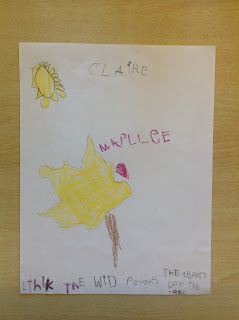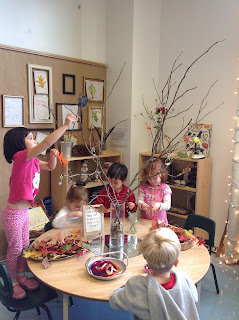We must abandon our idea of a static, knowable educator and move
on to a view of an educator in a state of constant change and becoming.
The role of the educator shifts from a communicator of knowledge to a
listener, provocateur, documenter, and negotiator of meaning.
Pacini-Ketchabaw et al., 2009, p. 103
(The Kindergarten Program, 2016)
I start with the quote above because I think it's so important to understand the inquiry process not only for educators, but also for families who engage with their children on a daily basis. When children ask questions and are curious, it's important to ask questions back, model your own curiosity, and ask them how they might be able to figure out more about their interest. In doing so, it keeps their curiosity going and allows the child to learn to use research and collaborative skills to seek out information. Extending the learning can open doors to new experiences involving the arts, literacy, mathematics, science, etc.
The Kindergarten Program summarizes the process that educators perform when they collaborate and co-construct thinking and learning with the children. I show this as I think it can also be quite helpful for families at home in supporting their children's interests.
The chart below, taken from the Kindergarten Program, highlights the elements of the inquiry process in kindergarten for children and educators. It is helpful to note the steps and actions taken by the children and educators as the inquiry develops and progresses through the different elements.
Possible reflections questions:
- What elements are being demonstrated?
- What are some initial questions that the children ask?
- What observations and explorations were done by the children?
- How did the children describe their theories or findings?
- What investigations took place?
- How did the educators act as co-learners with the children?
- What materials, resources, and provocations were provided by the educators to support and extend learning for the children?
- How were understandings and theories communicated?
- What other materials, provocations, and experiences, would you have added to this inquiry?
- An inquiry is like a web and can lead to many new discoveries and explorations. Based on the children's questions, observations, and theories, what other extensions did you notice may have potential for further investigations?
- Families, how can you support this learning at home?
A Curiosity and Fascination with Leaves
Wonders, observations, and theories...
























































